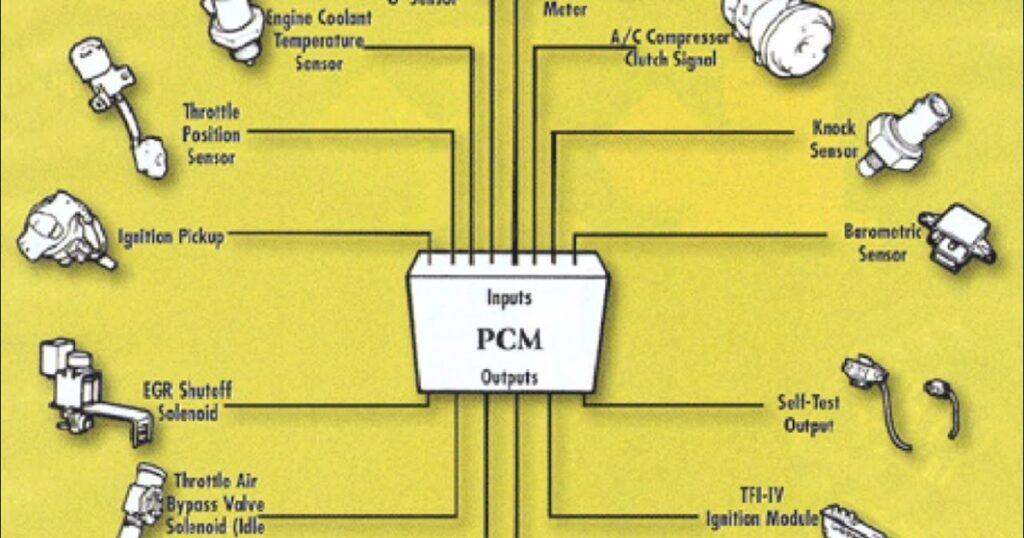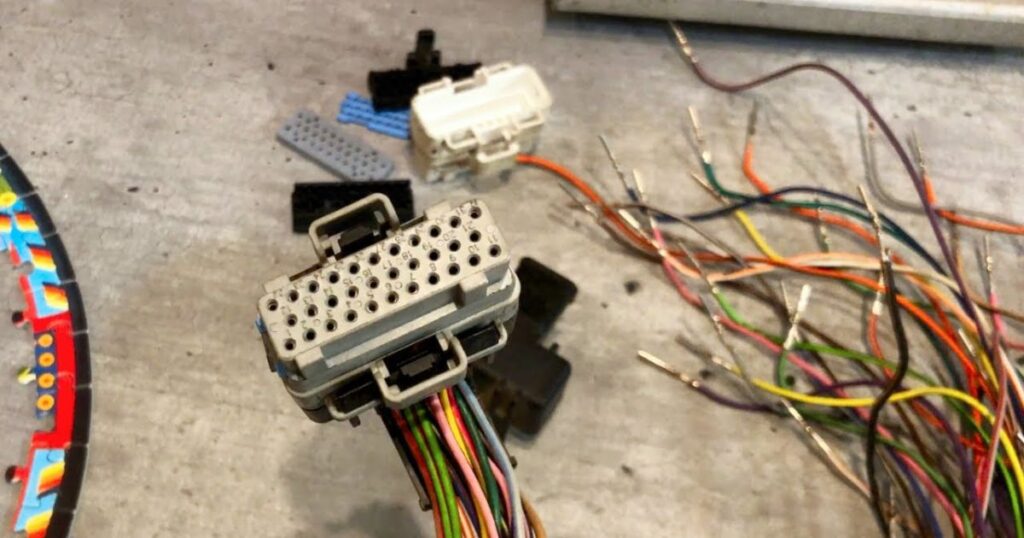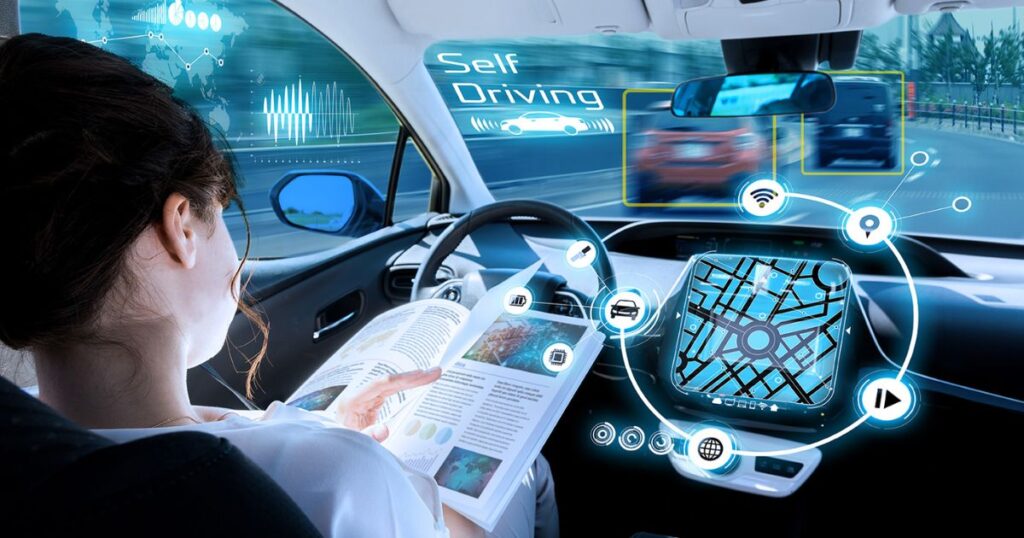Introduction
Are you puzzled by the abbreviation “PCM” with your car? Don’t worry, you’re not alone. Many car owners need to familiarize themselves with this crucial component that acts as the brain of their vehicle. In this comprehensive guide, we’ll dive deep into PCMs, exploring what they are, how they function, and why they’re vital for your car’s performance.
What is PCM in a Car?
The PCM, or Powertrain Control Module, is the central computer system that controls the engine and transmission in modern vehicles. It combines the previously separate Engine Control Module (ECM) and Transmission Control Module (TCM) found in older cars. The PCM is responsible for managing the various computer systems and sensors in your car, ensuring smooth and efficient operation.
The PCM is critical in today’s automotive landscape, where cars are equipped with complex machinery and computer controls. It acts as the car’s brain, making decisions based on the information received from various sensors and systems. Without the PCM, your car’s engine and transmission would be unable to function correctly.
How Does Automobile PCM Work?
The Powertrain Control Module monitors and processes signals from various computer-based car components. Here’s a closer look at how it operates:
- Monitoring: The PCM continuously monitors various functions within the car, such as the speed at which the wheels turn, the airflow to the engine and out of the exhaust, the temperature of the coolant, and many other parameters.
- Passing Signals: After receiving information from the various systems and sensors, the PCM passes these signals to its microprocessors for interpretation and decision-making.
- Decision Making: Once the PCM has processed the incoming data, it makes hundreds of decisions in a split second. These decisions include firing the spark plugs, injecting the right amount of fuel into each cylinder, determining the air-fuel ratio, and deciding when to shift the automatic transmission to a different gear.
The PCM’s ability to make real-time calculations and adjustments based on the data it receives is crucial for ensuring optimal performance and efficiency.
What Does the PCM Do in a Car?

The primary function of the PCM is to manage and control various aspects of your car’s operation to ensure smooth and efficient performance. Some of the critical functions handled by the PCM include:
- Idle Speed Control: Regulates the engine’s idle speed to prevent stalling or excessive idling.
- Ignition Timing: Adjusts the timing of the spark plugs to optimize combustion and fuel efficiency.
- Error Monitoring: Continuously monitors for errors or malfunctions in the engine and transmission systems.
- Transmission Control: Manages the automatic transmission’s shifting patterns and gear changes.
- Air-to-Fuel Ratio Management: Ensures the proper mixture of air and fuel is supplied to the engine for optimal combustion.
What Can Indicate a Bad PCM?
A malfunctioning PCM can significantly impact your car’s performance and fuel efficiency. One of the most common indicators of a bad PCM is your dashboard’s “Check Engine Light” illumination. However, other symptoms may suggest a problem with the PCM, such as:
- Poor Fuel Economy: A faulty PCM can cause the engine to run inefficiently, increasing fuel consumption.
- Starting Problems: Issues with the PCM can prevent the engine from starting or cause it to stall unexpectedly.
- Engine Performance Issues: Reduced power, rough idling, and hesitation during acceleration are signs of a PCM malfunction.
If you notice these symptoms, you must have your car inspected by a professional mechanic or dealership as soon as possible.
How to Test a PCM?
Diagnosing issues with the PCM typically involves using diagnostic tools and tests. Here are some standard methods used to test and diagnose a faulty PCM:
- Scanning for Error Codes: Mechanics will use an OBD-II (On-Board Diagnostics) scanner to read any error codes stored in the PCM’s memory. These codes can provide valuable insights into the nature of the problem.
- Monitoring Sensor Data: The PCM receives data from various sensors throughout the car. By tracking this sensor data, mechanics can identify if any sensors provide incorrect or inconsistent information, which could be causing the PCM to malfunction.
- Voltage Tests: Checking the voltage supply to the PCM and its associated components can help determine if there are any electrical issues or power supply problems.
- Circuit Testing: In some cases, mechanics may need to test the circuits and wiring connected to the PCM to ensure no shorts, open circuits, or other issues.
It’s generally recommended to seek professional assistance from a qualified mechanic or dealership when diagnosing and testing a PCM, as they have the necessary tools and expertise to identify and resolve the issue accurately.
How Much Does It Cost to Replace a PCM?
The cost of replacing a PCM can vary significantly depending on several factors, including:
- Car Make and Model: The complexity and rarity of the PCM can affect its cost, with higher-end or luxury vehicles typically having more expensive PCMs.
- Labor Charges: The labor involved in diagnosing, removing, and reinstalling the PCM can contribute significantly to the overall cost.
- Reprogramming and Coding: In some cases, the replacement PCM may need to be reprogrammed or explicitly coded for your car, which can add to the cost.
On average, you can expect to pay anywhere from $500 to $1,500 or more for a PCM replacement, including parts and labor. However, it’s always best to consult a trusted mechanic or dealership for an accurate quote based on your vehicle and situation.
Functions of a PCM
The Powertrain Control Module manages and controls various functions within your car’s engine and transmission systems. Here are some of the primary functions handled by the PCM:
- Fuel Injection and Air-Fuel Ratio Control: The PCM regulates the amount of fuel injected into each cylinder and manages the air-fuel ratio to ensure optimal combustion and emissions control.
- Ignition Timing and Spark Control: It adjusts the timing of the spark plugs firing to maximize power output and fuel efficiency.
- Transmission Shift Control: In automatic transmissions, the PCM determines the optimal shift points and controls the gear changes based on various factors, such as vehicle speed, throttle position, and load.
- Emissions Control: The PCM monitors and manages the vehicle’s emissions systems, ensuring compliance with environmental regulations.
- Engine Diagnostics and Error Monitoring: It continuously monitors the engine and transmission systems for errors or malfunctions, storing diagnostic trouble codes (DTCs) in its memory for troubleshooting.
- Idle Speed Control: The PCM regulates the engine’s idle speed to prevent stalling or excessive idling.
- Auxiliary System Control: In some vehicles, the PCM may also control auxiliary systems like climate control, cruise control, and other vehicle functions.
The PCM’s ability to seamlessly integrate and manage these various functions allows modern vehicles to operate efficiently, efficiently, and reliably.
Why Should You Replace the PCM?

Replacing a faulty PCM is crucial for maintaining your car’s optimal performance and preventing further damage or issues. Here are some compelling reasons why you should replace the PCM when necessary:
- Restore Engine and Transmission Performance: A malfunctioning PCM can cause various issues, such as reduced power, rough idling, and erratic transmission shifts. Replacing the PCM can restore proper engine and transmission operation, ensuring a smoother and more enjoyable driving experience.
- Improve Fuel Efficiency: A faulty PCM can lead to inefficient fuel management, increasing fuel consumption and operating costs. Replacing the PCM can help optimize the air-fuel ratio and improve fuel economy.
- Prevent Further Damage: Continuing to drive with a malfunctioning PCM can cause additional damage to other components in the engine and transmission systems. Replacing the PCM promptly can prevent these costly repairs down the line.
- Enhance Reliability and Safety: A properly functioning PCM is essential for maintaining your vehicle’s overall reliability and safety. Replacing a faulty PCM can help ensure your car operates as intended, minimizing the risk of breakdowns or potential safety hazards.
- Comply with Emissions Regulations: The PCM is crucial in managing your vehicle’s emissions systems. Replacing a faulty PCM can help ensure that your car remains compliant with environmental regulations and avoids potential fines or penalties.
Read More Posts
How Much Does A Replacement Car Key Cost?
Who Gives The Most Cash For Junk Cars?
FAQs
What are the symptoms of a bad PCM?
Hesitation, engine shuts off, loss of power, check engine light on.
What does a PCM do on a car?
The PCM (powertrain control module) controls various electronic systems like the engine, transmission, and emissions.
Is the PCM and ECU the same thing?
Yes, PCM and ECU are generally used interchangeably for the main computer that controls the engine.
How much does a PCM cost for a car?
For most cars, replacement PCM costs typically range from $500-1000, depending on the make and model. Labor to replace is additional.
Conclusion
The Powertrain Control Module (PCM) is undoubtedly one of the most critical components in modern vehicles. Acting as the brain of your car, it seamlessly integrates and manages various systems, including the engine, transmission, and emissions control, to ensure optimal performance, efficiency, and reliability.
Throughout this comprehensive guide, we’ve explored the inner workings of the PCM, its primary functions, and the telltale signs of a potential malfunction. By understanding the significance of this vital component, you can better appreciate the importance of keeping it in proper working condition.
Regular maintenance and prompt attention to any issues or warning signs are crucial to maintaining the longevity and performance of your car’s PCM. Whether addressing a diagnostic trouble code, monitoring sensor data, or replacing a faulty PCM, taking proactive measures can save you from costly repairs and potential breakdowns.
Remember, investing in the health of your car’s PCM is an investment in your vehicle’s overall well-being and longevity. Feel free to consult with professional mechanics or dealerships regarding diagnosing, testing, and replacing this critical component. Their expertise and access to specialized tools can ensure accurate diagnosis and proper replacement procedures.
By prioritizing the care and maintenance of your car’s PCM, you can enjoy a smoother, more efficient, and reliable driving experience for years.







